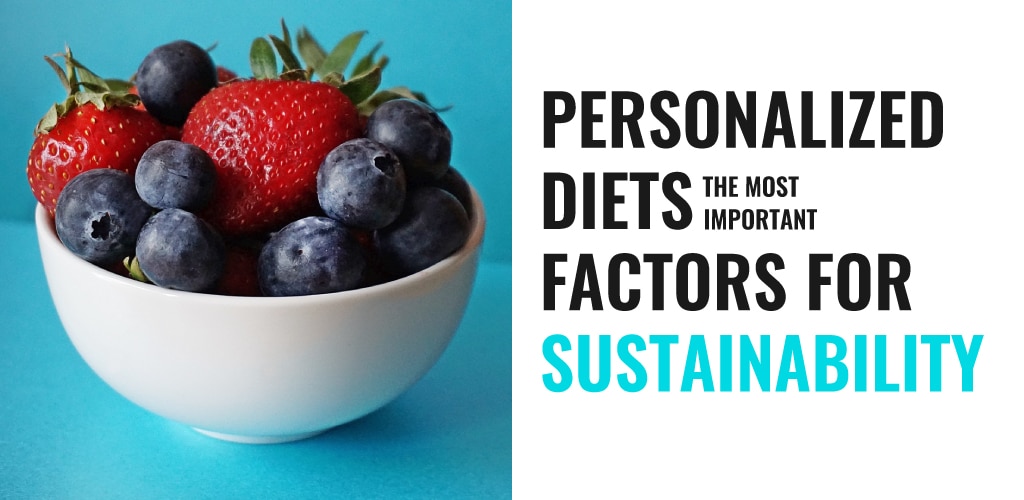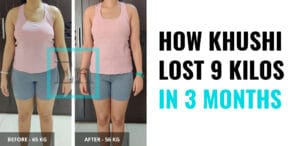You must have heard about personalized diets, either on this or other websites. In general, a personalized diet is one which is designed after considering several factors specific to you.
Personalized diets exist on a spectrum, meaning that a diet can be anywhere between very personalized and slightly personalized. This depends on the number of factors considered and the amount of information captured within each factor.
Think of it like the difference between a photograph captured in High Definition (HD) and Standard Definition (SD). You will see that the HD photo is clearer and sharper because it captured more information (pixels) than the SD photo. Similarly, the more information I capture from a client for each factor the more personalized I can make the diet.
The information each nutritionist captures from a client differs. When I am creating a diet, my topmost priority is sustainability. I could create the most nutritionally sound diet but if it’s not sustainable for the client then they aren’t going to follow it.
In that context, I consider the following to be the most crucial as they have a substantial impact on the sustainability of a diet. All these factors are based on the personal experience I have gained from working with my clients
Health
The primary aim of a good diet is that it should first fulfil your goals. However, it’s equally important to ensure that it doesn’t compromise your health. This includes your hormonal, renal, digestive, muscular and other organ systems. The thing is you can gain/lose weight even on a pathetic diet.
Take the example of one of my clients who’s a model. A few months before consulting me, she had participated in a beauty pageant for which she had to lose weight. She was pretty lean already but had to lose a few more kilos to meet the pageant’s requirements.
One of her acquaintances advised her to eat only boiled vegetables and lentil soups throughout the day for a month. Although she did lose weight, her health also deteriorated. She began experiencing irregularities in her menstrual cycle, hair fall and fatigue.
Therefore, the downside of following bad diets is an increased risk of developing nutrient deficiencies. This will eventually harm your health. A diet personalized to your health ensures that you reach your goals sustainably without compromising your health.
Daily Routine
A diet should be personalized to fit your daily routine. Many people do it the other way around – they try to adjust their daily routine to their new diets. This is possible if your routine is completely under your control, however, for most people this isn’t the case. The daily routine is affected by several factors which my clients don’t control. Therefore, a more sustainable approach is personalizing the diet to their daily routine as they have more control over it.
Social Life

You might be wondering how social life is related to nutrition. Humans are social beings i.e. most of us like to be in the company of other humans. Unfortunately, dieting and socializing don’t always go hand in hand. You might be familiar with the following situation –
You had successfully dieted for a month to lose weight and one of your friends decides to throw a party because she’s finally marrying (or divorcing) her boyfriend (I know, I’m very cheerful).
Come the night of the party, you pounce on the food and drinks like you haven’t eaten in a month. The next day you find it difficult to get on track because your perfect 1-month streak just broke. And just like that, the diet is over.
Sound familiar? Because of such experiences, clients often avoid social gatherings completely due to the fear of over-eating. I discourage such behavior because it ingrains the wrong idea about dieting. It is true that if you want to make good progress you must give your diet more importance than before. But don’t make it the center of your life.
Many clients did this before hiring me and they had eventually stopped dieting because it was ruining their social life. If you have legitimate concerns about overeating at parties or restaurants, you could explore meeting at places with healthier menus.
Therefore, I like personalizing the diet according to my client’s social life as well. For e.g., many clients like to eat out on the weekends. In such cases I allocate greater calories for the weekend and lesser calories during the weekdays.
Mental Health
Finally, I look at the potential mental health implications that my diet can have. Mental health is very underrated given how much it affects health. Many factors affect mental health such as variety of the diet, number of calories allocated etc.
I recommend my clients to have at least one session with a therapist to help them improve mental health. At the very least I ask my clients if they are happy following the program.
Conclusion
How personalized a diet is depends on the number of factors considered, the factors themselves and the amount of information a nutritionist can capture and utilize. The factors which I discussed are the most important ones according to me as they decide how sustainable the diet is in the long term. There are many other factors apart from these which I also consider depending on the client.





2 Responses
Comments are closed.